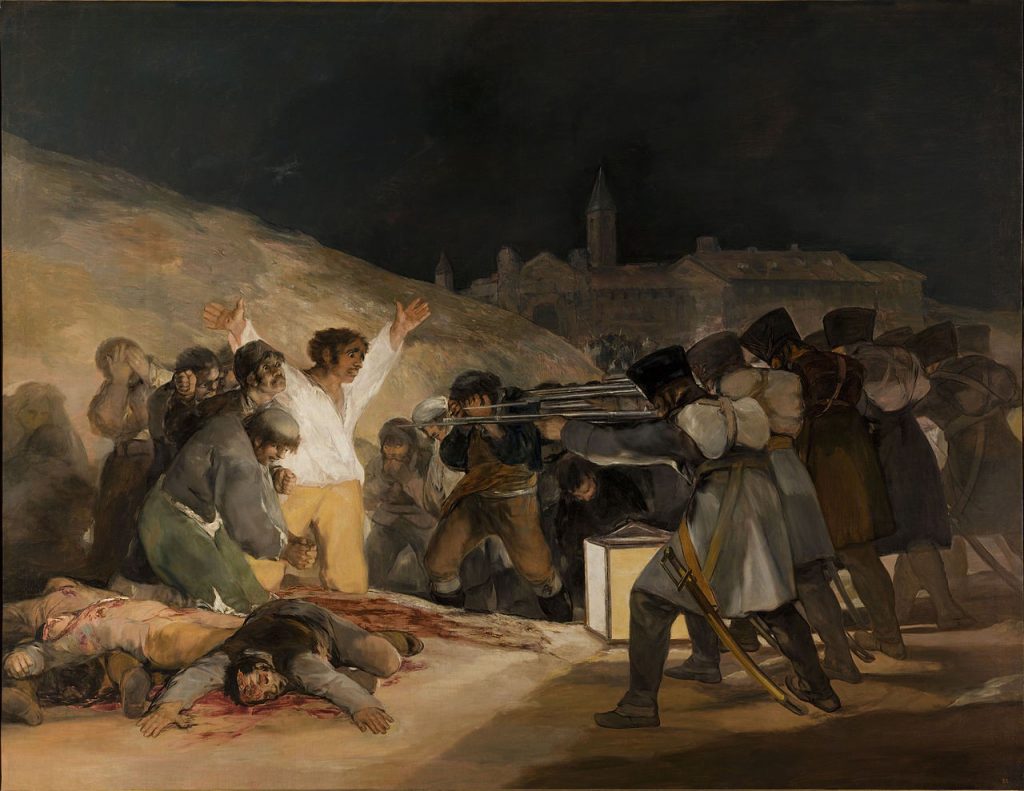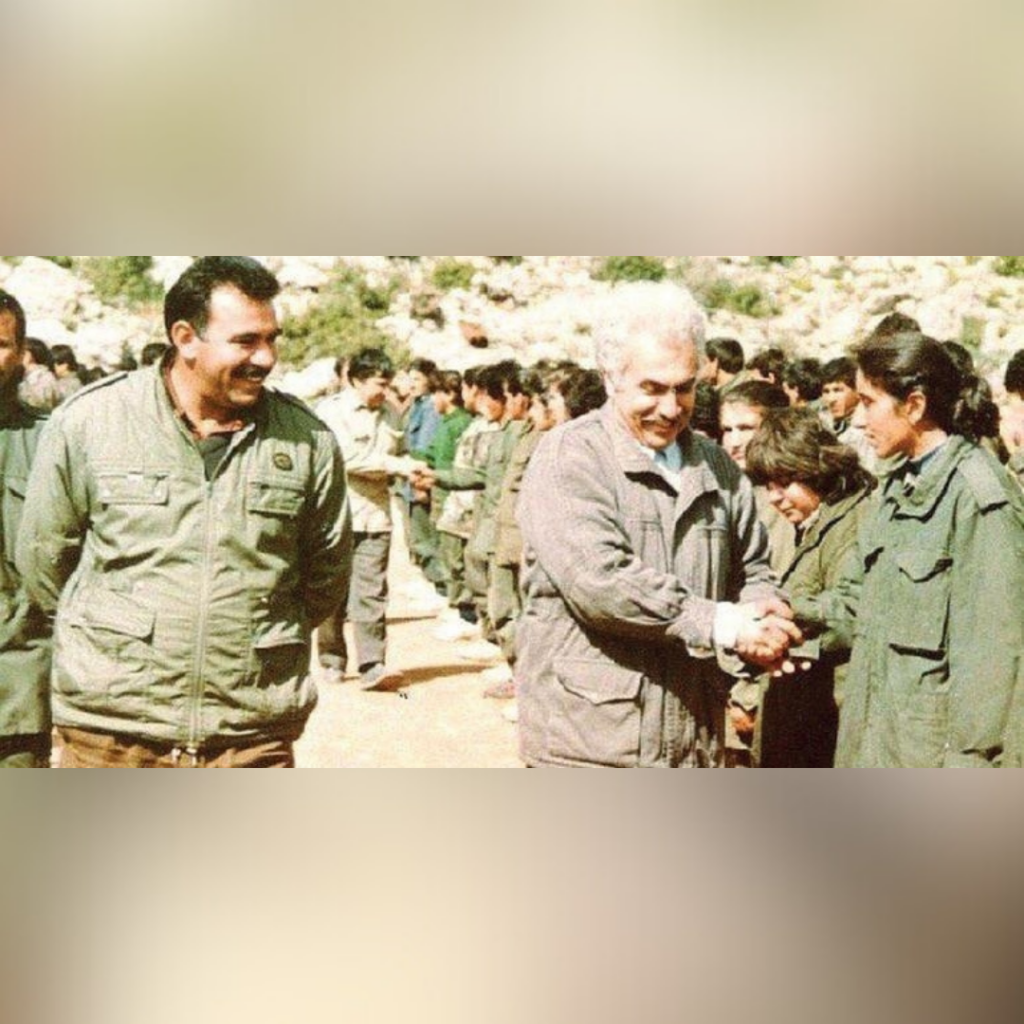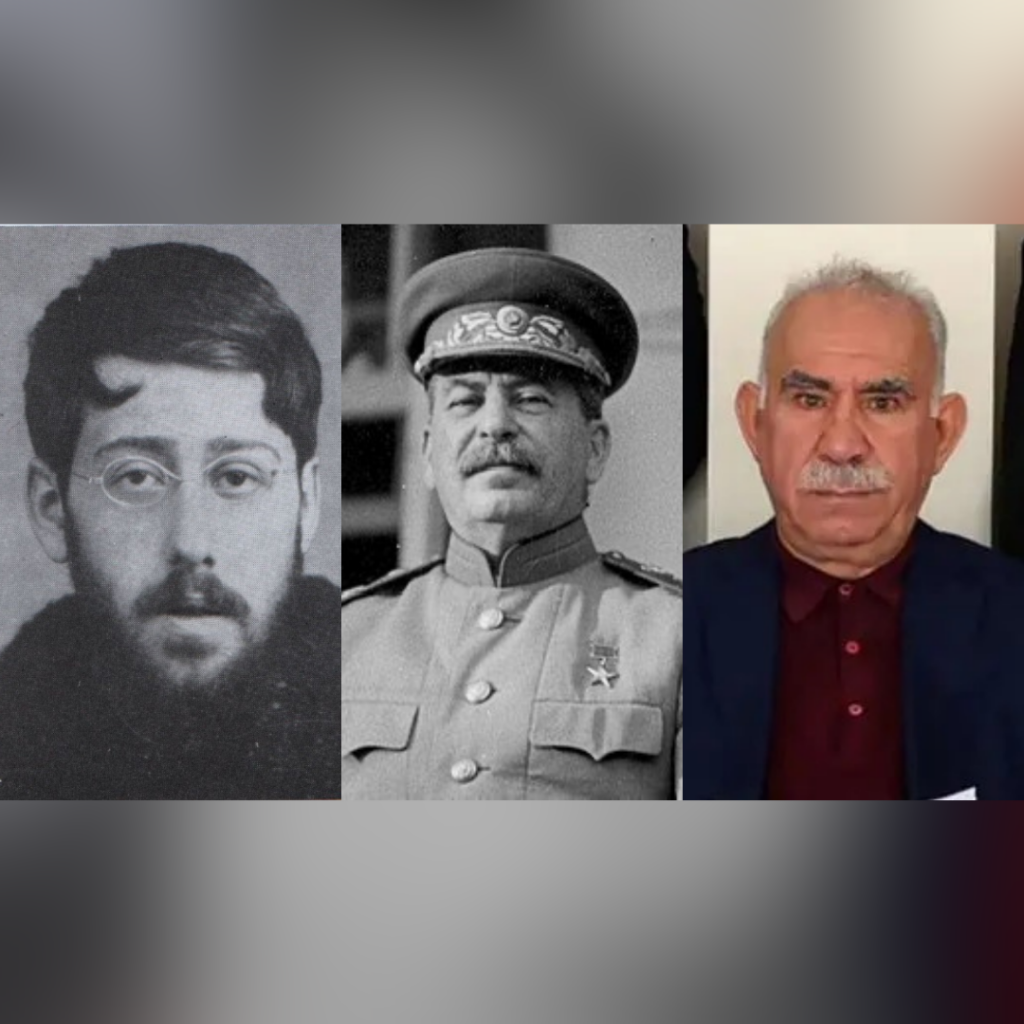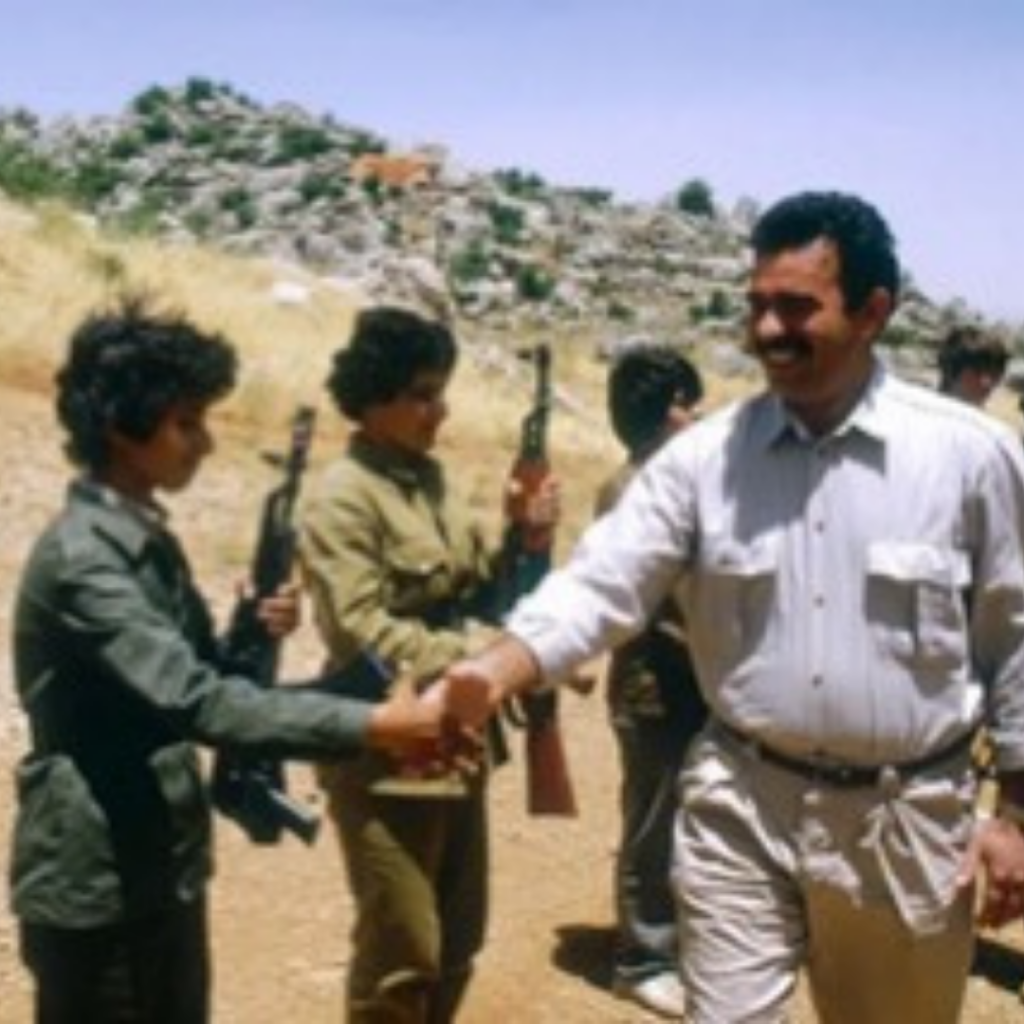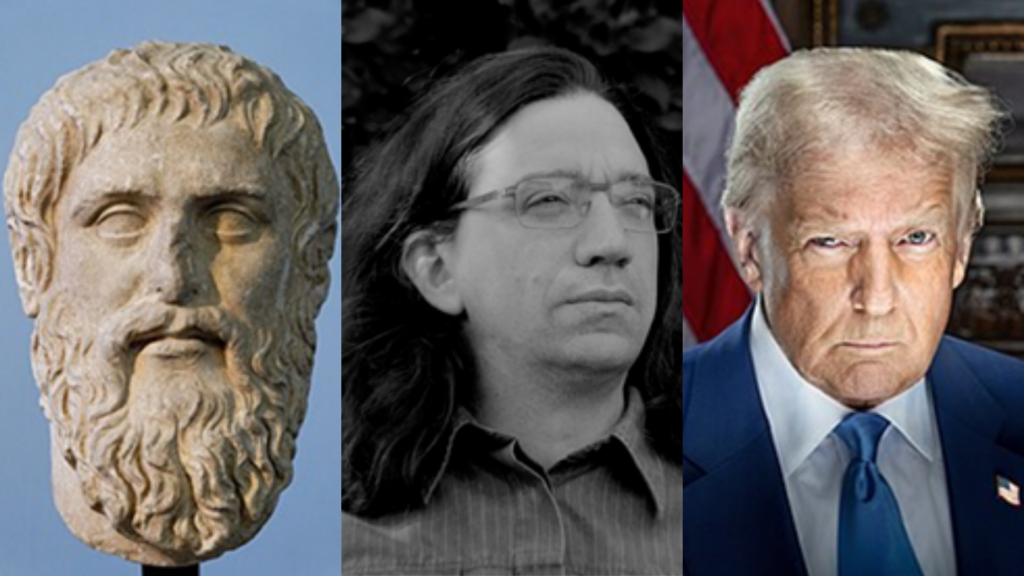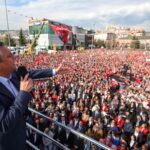[21st July 2016] This is its sorrowing, swaying introduction (in Ben Belitt’s 1961 translation): You will ask: And where are the lilacs? / And the metaphysics muffled in poppies? / And the rain which so often has battered / its words till they sprouted up / gullies and birds? I’ll tell you how matters stand with me. Towards the end he repeats more questions in the same vein, referring to himself in the third person: Would you know why his poems / never mention the soil or the leaves, / the gigantic volcanoes of the country that bore him? The answer is then spat out with bitter rage: Come see the blood in the streets, / come see / the blood in the streets, / come see the blood / in the streets! Here I cannot help remembering the late Enver Gökçe, who, though working not from the original Spanish but the French, was nevertheless able to put all this into so much more eloquent Turkish: Hani ya leylaklar, / diyeceksiniz? / Hani ya diyeceksiniz, / gelincikler bürünmüş / metafizik? / Kuşlarla, boşluklarla elenmiş / Kelime yağmuru; / (…) / Neden diyorsunuz şiirlerin, / Söz açmaz, düşten yapraktan; / doğduğun yerin / yüce volkanlarından? / Gel de gör: / caddeler kan-revan. / Gel de gör: / Caddeler kan-revan. / Gel de gör: / Caddeler kan-revan.
And now that we have also been put in a position by this abortive coup to ask, to tell the whole world: Come see the blood in the streets… I too, no longer as a hard Marxist but a left-liberal who persists in upholding democratically elected legitimacy against any form of revolutionism, insurrectionism or overthrowism, might perhaps be permitted to say a few additional words about how matters stand with me and indeed all Turkey.
* * *
Dear (X), with regard to your latest e-mail message, I do know that it is difficult to understand what is going on in this country of mine from the outside. Starting from late-February 2007, that is to say in the aftermath of Hrant Dink’s murder, I spent a year at Harvard as a visiting professor under “scholar at risk” status. Side by side with a nuclear physicist who had fled Iran, I did have a hard time trying to explain to some of my very kind hosts that the threat (if any) that I might be facing as a secular, critical intellectual was not coming from any Turkish “mullahs” (of the sort now imagined by Ralph Peters and his ilk) but the very opposite: Turkish nationalists and the state establishment behind them that were furious at me (along with Hrant and many other colleagues) for speaking out against an enduring Kemalist taboo about the Armenian genocide. Furthermore, that the Turkish Islamists as represented by the AKP, far from fitting into their expected role of “usual suspects,” were looking favorably on breaching that wall of silence.
That had to do with the stereotypes through which Western visions of Turkey have long been filtered, and which also extend to this last attempt at a military takeover. We all of us (meaning the West as well as Westernized, alla franca Turks inside Turkey, like myself and my family) have for a long time been living inside this dominant paradigm of “Kemalist modernization from above = progress” versus “religion [Islam] = obscurantism, fideism, reaction.” It has been the precocious early-20th century Turkish version of the Bismarckian sonderweg mixed with a large dose of Stalinism, or later Nasserism, or Baathism, or other Third World “forcible catching up” ideologies. It represents a quintessentially elitist paradigm, and has always entailed a huge lurking fear of the popular masses. For European antecedents that you might be more familiar with, dear (X), you could turn to Robespierre’s attempt to replace Christianity by an invented “civic religion,” or else to what Napoleon’s soldiers did to Spanish Catholic (hence reactionary!) peasants, which horrified Goya away from his own Jacobinism to resisting Revolutionary France and eventually painting (see the banner picture above) the Third of May 1808 massacre.
In Turkey and elsewhere, albeit with zigzags it has resulted in nothing but an ever bigger and ever more popular Islamic reaction — within the rising tide of which, early-21st century Turkey has actually been lucky enough to end up with a much more moderate form of Islamism than most other Muslim countries. In contrast the West, meaning mostly the US, has sought to keep such revolts of the masses at bay by shoring up modernizing local elites and forging a military-bureaucratic bulwark out of their authoritarian régimes. Thus even before the Cold War Kemalist Turkey was regarded as an outpost of Western civilization in the Middle East (later to be joined by Israel). In 1953 the CIA helped overthrow Mosaddegh to consolidate the quasi-Ataturkist Pahlavi royal dictatorship (for which the Iranian people have never forgiven America). Much more recently the US has conformed to pattern by thoroughly messing up, and continuing to mess up, Afghanistan and Pakistan, Libya and Egypt, Iraq and Syria, feeding jihadism whether of the Al Qaeda or IS variety with its own hands.
To come back to Turkey, around the turn of the century (2000-2002) there arose a new political conjuncture whereby, against the quasi-military tutelage exercised by a petrified, ossified, modernist-turned-conservative Ataturkist establishment, the Bonapartist generals of which (like the late Kenan Evren, who headed the 12th September 1980 coup) increasingly came to resemble the Cavaignacs of mid-19th century France, the moderate Islamism or conservative modernism represented by the AKP emerged as the only more democratic alternative. The left (or whatever “people of the left” that were still around) had to make an existential choice. In the name of their anti-religious modernism understood as progress, many persisted in sticking with custom and Kemalism. Others like myself decided to go with de-militarisation and popularly elected civilian governance. In predictable Orientalistic and Islamophobic fashion, the West suspected and disliked the AKP right from the outset. Similarly, the domestic military-bureaucratic establishment always hedged, resisted, dragged its feet, and never stopped looking for ways to block, obstruct, or topple these peripheral upstarts. Thus over 2003-2004, there was constant talk in the upper ranks of the Turkish Armed Forces of either bullying the AKP into docile submission or else overthrowing it before it was too late; there were a number of Republic-and-Flag rallies, so-called, organized by the Ataturkist old guard, during which placards were unrolled calling the army to “do its duty”; in 2007-2008 there was an all-out effort — during which the juristocracy came up with some truly outrageous legal juggling and demagoguery — to stop AKP candidate Abdullah Gül from being elected president, putting a man with a headscarf-wearing wife (horror of horrors) in the establishment’s holy of holies, the sacred precinct of Mustafa Kemal’s Çankaya Hill.
Retaining a sense of all such indignities inflicted over the past decade or more on civilian politics and due process is important, dear (X), because it has a lot to do with why and how a majority of the Turkish people have resolutely chosen to stand by the AKP not only through the 2007, 2011 and 2015 elections, but also through these incomparably more difficult last few days. Simply put, it has been a matter of upholding their own sovereign political choice against illegitimate outside encroachment. So here is a theoretical proposition. Both here and on your side of the Atlantic, some people seem to think that being a democrat is an innate quality. First you have to be a democrat a priori — to demonstrate your (modern, Western, civilized) democratic outlook (which is regarded as being incompatible with religiosity, and of course not so much Christian as Muslim religiosity). Then and only then may your political acts be qualified as democratic.
Actually, quite the opposite is true. Being for or against democracy is not a god-given essence. Rather, it has to do with where you concretely position yourself in a given political context. It is by repeatedly defending democracy in action, on the streets (as well as in the voting booth), that the majority of the Turkish people, whatever their personal origins and subjective motivations, whether because of their faith or love of Erdoğan or accumulated hatred or military takeovers, have collectively constituted and defined themselves as democrats.
Putting this together has taken some time. It is quite late in the evening, and I am afraid I am growing tired; words are coming with greater and greater difficulty. Let me stop at this point; I’ll be hoping to continue tomorrow with a few notes intended to demystify the Gülen congregation. As ever. — Halil.
Yazıyı beğendiysen, patronumuz olur musun?
Evet, çok ciddi bir teklif bu. Patronumuz yok. Sahibimiz kar amacı gütmeyen bir dernek. Bizi okuyorsan, memnunsan ve devam etmesini istiyorsan, artık boş olan patron koltuğuna geçmen lazım.
Serbestiyet; Türkiye'nin gri alanı. Siyah ve beyazlar içinde bu gri alanı korumalıyız. Herkese bir gün gri alanlar lazım olur.




